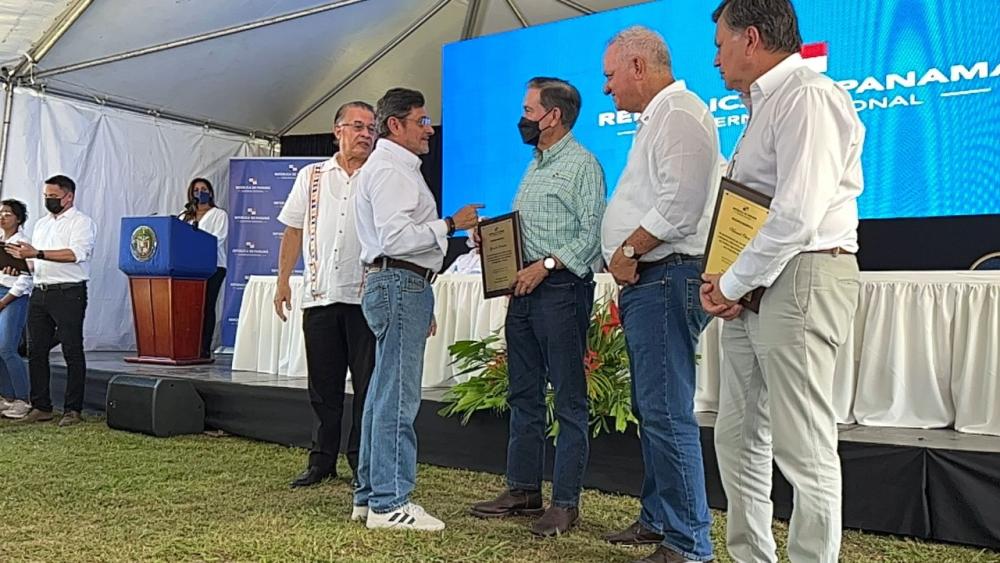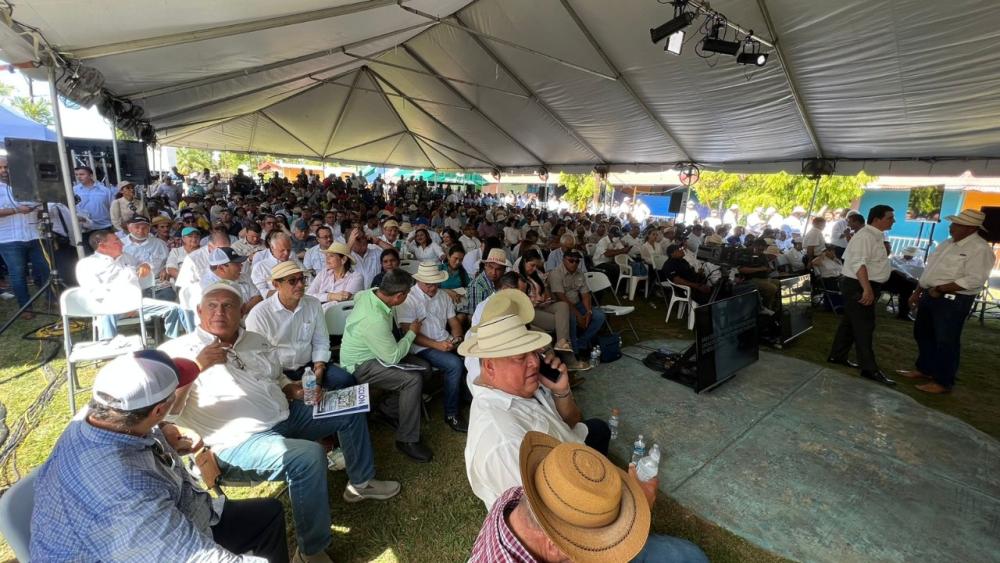Under the act, national agricultural production is declared to be a State priority, given the key role it plays in ensuring the country’s social, political and economic stability, and people’s right to adequate food.

San Sebastián de Ocú, Herrera, Panama, 19 January 2023 (IICA) – Panama’s State Agrifood Policy Act, aimed at guaranteeing the human right to food and protecting the production sector, is now in force in the country.
President Laurentino Cortizo Cohen ratified the law at a ceremony attended by hundreds of farmers from different regions of Panama. Manuel Otero, Director General of the Inter-American Institute for Cooperation on Agriculture (IICA), participated as a special guest, given the hemispheric organization’s key role in the process of discussing and drafting the law.
“This is a historic and very exciting day”, said Cortizo Cohen, who noted that this is the first legislation of its kind in the hemisphere. He also explained that it is particularly relevant at a time when food security is at the forefront of discussions, due to global inflation, the climate crisis and the lasting effects of the Covid-19 pandemic.
The President explained that the act seeks to generate the necessary conditions to provide Panamanians with constant access to healthy and nutritious food at affordable prices. At the same time, it fosters the competitiveness of agriculture, with a focus on the economic, social and environmental sustainability of food production and the well-being of rural dwellers.
Under the act, national agricultural production is declared to be a State priority, given the key role it plays in ensuring the country’s social, political and economic stability, and people’s right to adequate food.

The President considered that the State Agrifood Policy Act, which was unanimously approved by Panama’s National Assembly last October, sets an example for other countries, given that it establishes State policies that foster food sovereignty.
The law was ratified during the 62nd Tourism and Agricultural Fair of San Sebastián de Ocú, in the Panamanian province of Herrera. In attendance were Augusto Valderrama, Minister of Agricultural Development; Carlos Salcedo, Minister Counselor for Agricultural Affairs of the President’s Office; and Gerardo Escudero, IICA Representative in Panama, among other representatives of international organizations.
“We cannot favor food imports like we did in the past. If necessary, we can agree on what products to purchase abroad to complement domestic production. However, we will not import food if our farmers are harvesting”, added Cortizo.
For his part, Otero explained that the law provides Panama’s agriculture sector with greater predictability and is based on the premise that there can be no food sovereignty without farmers who are rooted in rural areas, where they can secure a livelihood for themselves and their families.
The legislation is the result of two years of dialogue with the public and private sectors in Panama, a process in which IICA provided technical assistance. Moving forward, the Institute will also become involved in policy implementation. A portfolio of investment projects representing more than 1.2 billion dollars is expected to be implemented over the next ten years, with a focus on the technological transformation of agriculture and on reaffirming its role as an engine of economic and social development in Panama.
Four areas of reform
The State Agrifood Policy Act establishes four areas of structural reforms to drive the multidimensional development of rural areas in Panama, namely: Reform of Agrotechnology Use and Production Value Chains; Reform of Comprehensive Agrifood Education; Reform of the Legal Framework for the Public Sector and the Management Model; and Reform of the Welfare Model for Rural Families.

The objectives established in the act include strengthening agricultural policy through the incorporation of science and technology, and tackling the effects of climate change. Emphasis is also placed on the fact that agricultural production is essential not only for food production, but also for improving the living conditions of peasant and indigenous populations in rural areas.
The Ministry of Agricultural Development, in coordination with the Ministry of Economy and Finance, will be responsible for drafting the National Agricultural and Rural Sector Development Plan, which will remain in effect for at least ten years, as set out in the law. Some of the objectives that will be included in the plan are improved living conditions for rural dwellers; the promotion of competitiveness; the efficient management of rural territories; and efforts to encourage the implementation of climate change mitigation and adaptation measures.
More information:
Institutional Communication Division
comunicacion.institucional@iica.int











